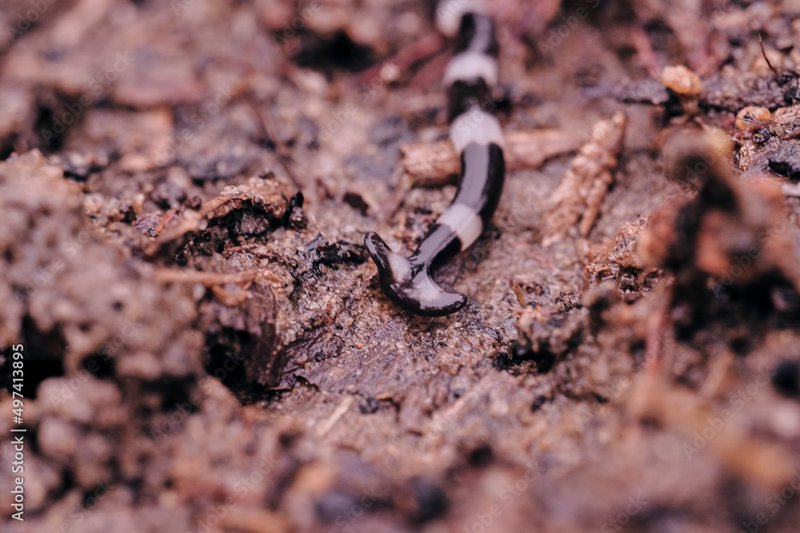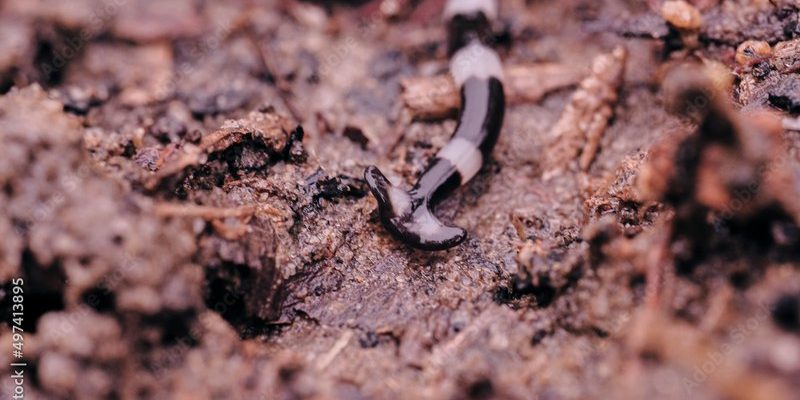
Hammerhead worms, known for their distinctive shape resembling a hammerhead shark, don’t just add flair to the garden. They play a significant role in controlling the population of soil nematodes. Nematodes are tiny, thread-like worms that often go unnoticed, but they serve as important players in the soil’s health by helping decompose organic matter and recycle nutrients. However, when hammerhead worms enter the scene, their presence can lead to a serious imbalance. So, let’s explore how these unique predators influence the lives of nematodes and what that means for our soil health.
What Are Hammerhead Worms?
You might be wondering, **what exactly are hammerhead worms**? These fascinating creatures belong to the family **Geoplanidae** and are native to tropical regions. They are easily recognizable thanks to their broad, flattened head that looks just like a hammerhead shark. Most species grow between 10 to 30 centimeters long, and their colors can range from brown to bright shades of orange and green.
In the soil, these worms are primarily *predators*, feeding on other invertebrates. Although they may not seem intimidating at first glance, they have a voracious appetite for soil-dwelling organisms, including nematodes. When hammerhead worms invade an area, they can quickly become the top predator, impacting other organisms and the soil ecosystem. Their presence is a bit like introducing a new player in a board game who ends up flipping the table—everything changes!
The Role of Soil Nematodes
So why should we care about soil nematodes? Think of nematodes as *the unsung heroes* of the soil ecosystem. While they might be small, their benefits are huge. These microscopic organisms play numerous roles that contribute to soil health, such as:
- Decomposing organic matter: By breaking down dead plants and animals, nematodes help recycle nutrients back into the soil.
- Controlling plant pathogens: Some nematodes feed on harmful bacteria and fungi, keeping harmful organisms in check.
- Enhancing soil structure: Their movement through soil creates channels that improve air and water circulation.
Essentially, nematodes are essential for maintaining a healthy, nutrient-rich environment for plants to thrive. However, the increasing presence of hammerhead worms threatens their existence, shifting the balance in the soil ecosystem.
How Hammerhead Worms Impact Nematode Populations
You might be asking, **how exactly do hammerhead worms affect nematodes**? The answer lies in their predatory behavior. Hammerhead worms voraciously hunt and consume nematodes, which can lead to a rapid decline in their populations. Here’s what happens:
1. **Predation**: Hammerhead worms actively seek out nematodes to eat. Their flat bodies make them efficient hunters, allowing them to sneak up on unsuspecting prey.
2. **Population Imbalance**: With hammerhead worms preying on them, the population of beneficial nematodes can decrease significantly. This can disrupt the natural cycle of nutrient recycling in the soil.
3. **Ecosystem Effects**: The loss of nematodes can lead to an overabundance of organic matter, as fewer decomposers are available to break it down. This can create a cascade effect, resulting in decreased plant health and soil fertility.
The presence of hammerhead worms can, therefore, be detrimental—not just for nematodes, but for the entire soil ecosystem.
The Consequences for Soil Health
Now that we’ve established the role of hammerhead worms and nematodes, let’s dive deeper into the broader implications for soil health. When soil nematode populations dwindle due to predation, the effects can be profound:
– **Reduced Nutrient Cycling**: With fewer nematodes, the decomposition of organic matter slows down. This means that nutrients like nitrogen and phosphorus aren’t being recycled effectively, which can lead to nutrient deficiencies in plants.
– **Increased Pathogen Levels**: As nematodes help control pathogens, their decline can lead to the proliferation of harmful bacteria and fungi. This can cause diseases in plants, making them more vulnerable to environmental stressors.
– **Soil Structure Decline**: The movement of nematodes helps aerate the soil. Their absence can lead to compaction, reducing water infiltration and overall soil health.
Essentially, when hammerhead worms invade, they disrupt the delicate balance that keeps the soil ecosystem healthy and thriving.
Managing Hammerhead Worms in the Garden
If you’ve got hammerhead worms crashing the party in your garden, you might be wondering how to manage them. Here are some practical steps you can take:
1. **Manual Removal**: If you’re dealing with a small number of hammerhead worms, you can simply pick them up and relocate them to a more suitable area. Just make sure to wear gloves!
2. **Encourage Natural Predators**: Some organic predators can help keep hammerhead worms in check. Consider introducing beneficial insects, like certain beetles, into your garden.
3. **Improve Soil Health**: A healthy, balanced soil ecosystem can help resist the impact of invaders like hammerhead worms. Regularly adding compost and organic matter can boost beneficial organisms like nematodes.
Remember, while it may be tempting to use pesticides, this can further disrupt the ecosystem by harming beneficial creatures, including the nematodes you’re trying to protect.
The Bigger Picture: Ecosystem Balance
When we look at the impact of hammerhead worms on soil nematodes, it becomes clear: this isn’t just a local problem; it’s a matter of *ecosystem balance*. Biodiversity is crucial for healthy ecosystems, and when one species, like the hammerhead worm, becomes too dominant, it can lead to a chain reaction.
Maintaining a balanced ecosystem isn’t just about dealing with pests; it’s about understanding the intricate relationships among all soil organisms. As gardeners, landscapers, or anyone working with soil, it’s vital to recognize how interconnected these elements are.
Think of it this way: just as in life, every individual in an ecosystem has a role to play. When one plays too strong a hand, it can disrupt everything. Finding the right balance is key to supporting a thriving environment.
In conclusion, hammerhead worms significantly impact soil nematodes, which in turn affects soil health. It’s crucial to manage their populations and support a healthy ecosystem, ensuring that all players in this underground game can thrive together. The next time you dig in the dirt, remember: every worm—whether beneficial or predatory—has a role in the grand scheme of soil health.

